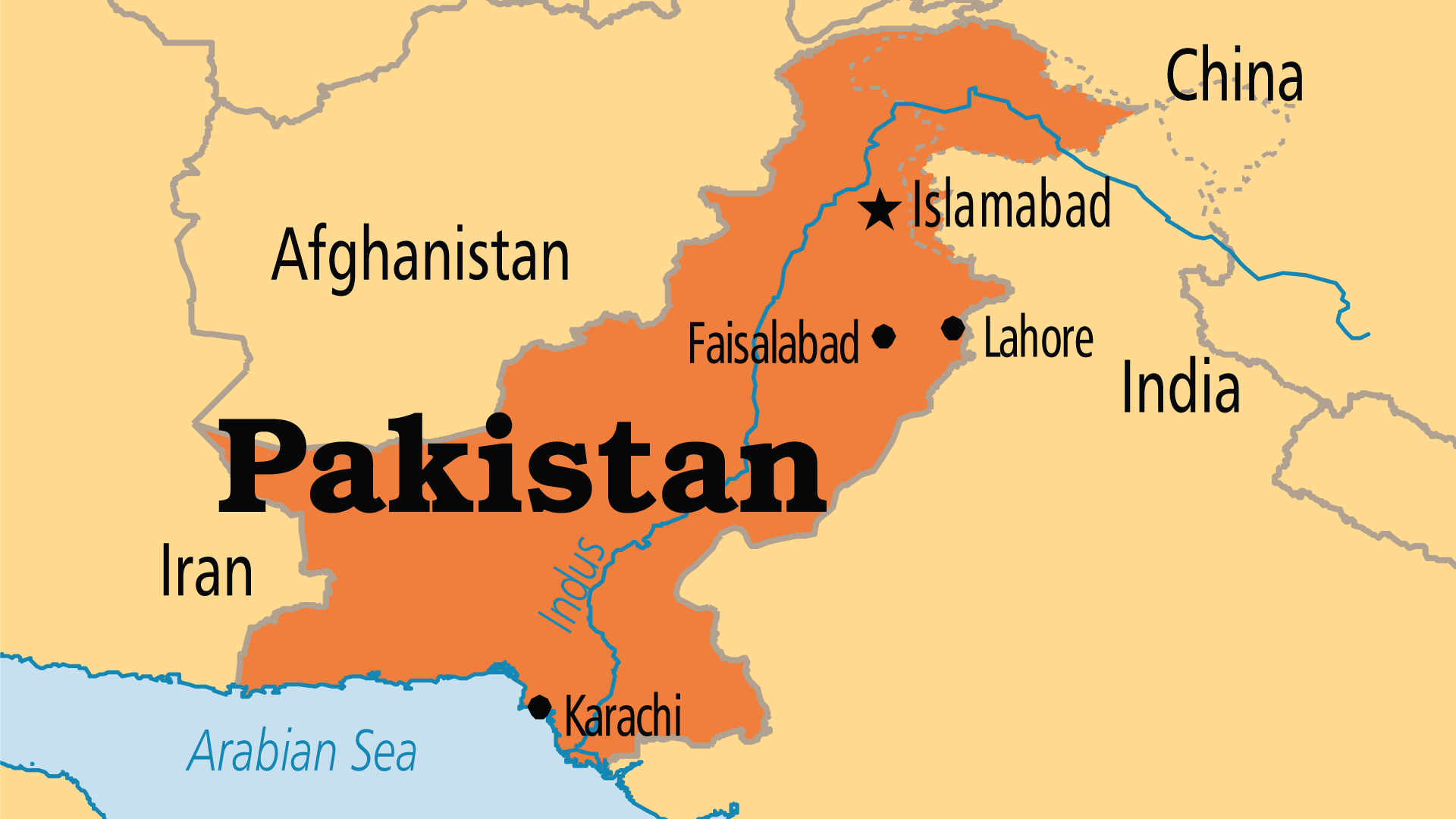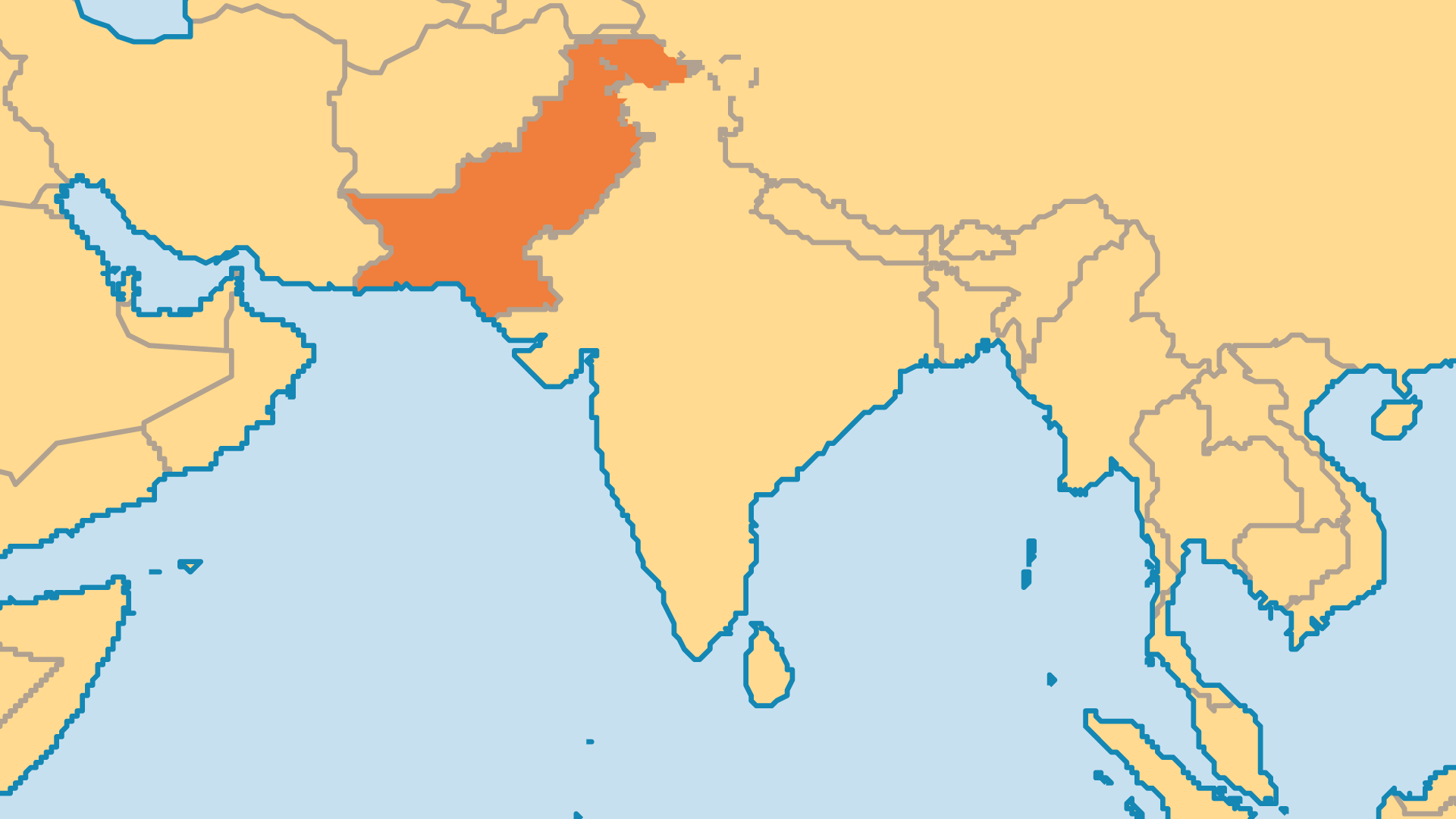Pray today
The Church continues to grow, despite many obstacles. Poverty, illiteracy, and lack of teaching opened the door to corruption, immorality, and low spiritual standards among Christians. Some Christians live devoted lives, committed to God, but the majority have a weak, immature faith. Common problems in churches include leadership struggles, greed, court cases, substance abuse, and divisions. Ask God to raise up humble, committed spiritual leaders with passion to serve the Church. Pray for more students in Bible and leadership training, wise and godly leaders, and adequate financial resources for Christian work.
More
Outreach by Pakistani Christians is an issue needing major change. Few Muslims have ever come to Christ because the existing Church emerged from the lowest rungs of society - mainly Hindu Dalits of the Punjab and Hindu tribal peoples of the Sindh. Huge cultural boundaries exist between the Muslim majority and the Christian minority. Little has been done to reach Muslims or even Hindus. Many factors conspire to make Christians fearful, introspective and silent, yet despite the negatives, there is a considerable degree of freedom to openly share the gospel for those with the boldness and faith. OM teams challenge many believers to become involved in outreach. Pray for Christians to be impassioned and equipped to share their faith and to answer the claims and questions of Muslims. Signs of an awakening in this area are appearing, and a small but growing number of indigenous believers are starting to reach out cross-culturally.
Believers from a Muslim background are in a unique and challenging situation. Islam, particularly under shari'a, has grave or deadly punishments for apostates. Yet increasing numbers of Muslims are coming to faith in Jesus, often through media such as literature, radio, TV as well as dreams and visions and the witness of Pakistani Christians. Some are ex-militants. Churches, comprised mostly of Hindu-background and lower caste believers, do not know how to integrate and disciple these people, and so the large majority of them revert to Islam, turn to atheism or retreat to private faith. Some networks of Muslim-background believers are emerging for mutual spiritual support and discipleship. Pray for such networks to spread and fellowships to form for these believers so that they do not easily fall away. Ask the Lord to raise up leaders for these believers, and for their protection. Pray that any such movement will develop solid disciples with hearts to reach other Muslims.
Pakistan lies at the very heart of the unevangelized world. Over 350 peoples and castes can be regarded as unevangelized. Many of these have no churches, no Christians, no missionaries and no witness. Pakistan is the world's second-largest concentration of unengaged, unevangelized peoples and the world's second largest Muslim population. Few countries, if any, present a greater challenge for missions. Pray for the calling of more intercessors, advocates and missionaries for these people in such hard places:
- The Punjabi majority on the Indus plain. Few of these highly populous Muslim groups have been reached. There are some fellowships among them as well as growing numbers of secret believers.
- The Pashtuns of the North-West Frontier with Afghanistan are famed as combative, clannish and fundamentalist, comprising the majority of the Taliban. They control the lucrative drug and weapon trades in Pakistan and Afghanistan. Over two million live in Karachi. There are only two known Pushtu-speaking fellowships, but a response to the gospel is beginning. A handful of expatriate workers and agencies are committed to ministry among them, but those who learn the language come under intense spiritual attack. Some claim the Pashtun heartland is one of the most spiritually oppressive places on earth.
- The Seraiki-speaking peoples have thus far been largely ignored by Christian work, with very few Christian resources available to them. Largely rural, they number 14 million, divided among 200 peoples speaking Seraiki as either their primary or secondary language.
- The Sindhi peoples are among the poorest and least-evangelized people groups in the world. There are only a couple hundred known believers from a Muslim background and no truly Sindhi congregation among these groups which number up to 25 million people. FEBA, TWR and GFA broadcast in Sindhi as well as other languages. WV runs a hospital that meets many health needs, especially for women. An International Sindhi Partnership links churches and agencies interested in the Sindhi. Signs of the Holy Spirit's working among the Sindhi are becoming evident.
- The Baloch and the Brahui. Some 75% of the world's ten million Baloch live in Pakistan. They are notoriously difficult to reach - Balochistan is geographically inhospitable, poor and very hard to access for expatriates, but some Baloch are very responsive to the gospel. Over one million live and work in Karachi. Only a few hundred Baloch and Brahui believers are known globally with reports of increasing numbers coming to faith, but the vast majority of them remain untouched by the gospel.
- The Mohajirs are Urdu-speaking peoples who are native to India. They are highly urbanized and make up nearly half of Karachi's population. They are financially more prosperous than most groups and are quite accessible, yet there is only one fellowship and only one church-planting team trying to reach as many as 10 million Mohajirs.
- The peoples of the far north. Over 27 smaller people groups live in the mountain valleys of Kashmir, Kohistan, Swat, Dir, Chitral, Gilgit and the Hunza. The Kalash are largely animist but are increasingly becoming Muslim. All the other peoples are Muslim - Sunni, Shi'a and Ismaili. Pray especially for the Burusha of the Hunza, the Tibetan-related Balti, the Khowari of Chitral, the Shina, the Kohistani and Turbvali as well as the numerous smaller groups. There are only a few Christians and a handful of fellowships among these peoples.
- Karachi is a chaotic city with a huge population (double the official population figures), inter-ethnic conflicts, kidnappings, violent crimes and widespread drug addiction. Karachi has six peoples of over one million population (Pashtun, Sindhi, Baloch, Punjabi, Bengali and Urdu-speaking Mohajirs) and nine more over 100,000. Only three have a dedicated team of missionaries focused on reaching them. CMS and others have a ministry to some of the two million addicted to drugs or at risk. Karachi is the business and economic centre, the locus of ethnic interaction and an easier place for foreigners to work. As such, it is the strategic key to reaching and influencing Pakistan with the gospel.
- Afghan refugees in Pakistan numbered around 4 million in 2023. Around 1.7 million of them are undocumented. Many fled Afghanistan due to the Taliban's takeover. Others have lived in Pakistan their whole lives. As of November 2023, Pakistan began forcibly deporting Afghans en masse. The migrants, many of whom arrived with next to nothing, find themselves shaken down by corrupt officials, forced to sell their possessions (they are not allowed by Pakistan to take them back), and returned to a country where safety, food, and employment are all in short supply. For years, Christian groups in Pakistan faithfully offered aid and assistance, often at great risk to themselves. As a result, there are number of Afghan believers in Karachi and Islamabad. Pray that this human tragedy, which some are calling ethnic cleansing, would somehow lead more Afghans to discover a Jesus who is more than ready to receive them.
- The Ahmadiyya are a missionary-minded Muslim sect, largely driven underground in Pakistan by persecution. Viewed as heretics by other Muslims, they are one of the most intensely persecuted religious groups in Pakistan. Few of the four million Ahmaddiya in Pakistan or the 10 million worldwide have ever come to Christ, but their sufferings are making them more open for the good news. Currently no groups are focused on reaching them.
Young people are a major subject for prayer, since 37% of the population are under age 15 and 50% are under 24. School enrolment is low (only 58% at middle school level), but thankfully rising as child-labour rates decline. Pray about these issues:
- Rural youth, two-thirds of Pakistan's young people, must deal with poverty and the perpetuation of medieval practices - such as child labour, bonded labour (often lasting multiple generations) and forced marriages (often of children to repay debts). They usually have little chance of advancement in life and little opportunity to hear the gospel.
- Young urbanites face endemic corruption in both education and employment practices as well as disillusionment with politics and the system in general. The future holds grave danger if these issues are not addressed; eager recruiters for militant groups easily prey on such youth.
- Drug addiction is a massive challenge. Studies indicate up to seven million chronic drug abusers, many of whom are university students or from the educated class.
- Ministry specifically to young people is rare but gaining momentum. Good work is being done by SU, OM, Church Foundation Seminars and the Christian Youth Development Organization. PFES(IFES) has 70 groups with 1,000 students in 10 cities. Cru has 74 national staff operating in 20 cities. Discipling and training Christian young people for future impact, leadership and mission are strategic investments of ministry. Pray for the development of more resources specifically for them.
Pakistanis have emigrated all over the world in recent years - especially to the Middle East, North America, Britain and Australia. The Pakistani diaspora is around seven million strong. Very few of them have come to Christ, and Christians have generally done little to reach out to them. Praise God for accelerating efforts to reach the one million living in Britain and the more than two million Pakistanis living as labourers in the Arab Gulf region. Even so, more workers and more coordination are needed for this increasingly promising and fruitful, yet sensitive and at times dangerous, ministry.
Christian media ministry:
- Bible translation is a big challenge with only seven of Pakistan's 70 languages having a NT or Bible. Translation teams are working on 16 languages; three more need extensive revision; eight have definite translation needs and six more need further research. Many existing translations are old, outdated or not in use. Modern Urdu and Sindhi translations are a point for praise; the same need exists for Punjabi and Seraiki in particular. An Urdu translation that incorporates terminology more appropriate for Muslim Urdu speakers is also needed. Pray for expatriates and nationals to be called and equipped for translation work.
- Radio is, for millions, the only way to hear the good news. The need remains for mature, trained Christians to produce more programmes. Several radio ministries are broadcasting into Pakistan, including GFA, IBRA, HCJB, TWR, FEBA and AWR. The government monopoly of medium-wave radio means that shortwave is widely used and listened to. Pray for more workers, more languages, more programmes, more broadcast hours and more who listen and respond. FEBA broadcasts 2.5 hours per day in Urdu, Punjabi, Pushtu, Sindhi, Siraiki, Hindko, Balti and Chitrali. TWR broadcasts in Urdu and Pushtu. IBRA broadcasts five hours of Pushtu per week.
- Cable television is a newer medium increasingly being used by the national church. Christian radio stations are illegal, but Christian TV channels and programmes are allowed. Pakistan Christian Network, Jesus Christ Television and Gospel Broadcasting Network are three such examples with potential viewerships of millions. Pray that such channels would effectively minister to Christians and be a helpful witness to Muslim viewers in explaining and demonstrating the gospel.
- Internet sites. Areas of Internet Christian outreach and support have great potential: online evangelistic sites, discipleship and teaching materials, apologetics for answering Islam and even Bible translations. Online chat facilities would allow Christians to interact with seekers when security and safety are issues. Computers and mobile phones, especially in cities, allow more people access to these gospel materials and have the potential to reach many more in the future. Internet accessibility also allows the truth about Christianity and the Bible to be told and potentially brings transparency to social, economic and political issues where deceit once ruled. However, false teachings and anti-Christian propaganda also proliferate through this same medium.
More Information
- Get all of this content and daily notifications in our free mobile app. Download here ›
- Sign up for a daily e-mail that gets you the featured prayer point of the day straight to your inbox.
- This content is a curated selection of points from our book, Operation World. Find out more about it and all the rest of Our Publications ›
Content taken or adapted from Operation World, 7th Edition (2010) and Pray for the World (2015). Both books are published by InterVarsity Press. All rights reserved.


